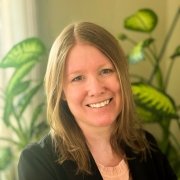Consider Mutual Mentoring for Shared Professional Achievement This Academic Year
MedEdPearls September 2024: This academic year, consider how mentoring—whether peer, multiple, or mutual—can help you reach your professional goals while also supporting the growth of your colleagues.
With the launch of each school year, we find ourselves immersed in planning for teaching, developing curriculum, optimizing processes, improving practices, and a myriad of other activities designed to get our learners from point A to point B. But have you identified your own professional point B for this academic year? If you, like many of us, could use some inspiration in establishing goals this year, two previous #MedEdPearls relate to this subject: “Returning to Campus with Intention” and “10 Habits for Career Success in Health Professions Education.”
Once you have established your own professional goals, I would like to additionally challenge you this year to consider the collective success of your educator community. For example, do you have a colleague who you see consistently neglecting their own personal growth? Educators are natural givers, and as such, often neglect to integrate their personal goals into academic planning. As a community, we can, and dare I say should, mentor each other in this practice. We can help each other strive for, achieve, and be recognized for excellence in education each year.
“A Review of Mentoring in Academic Medicine,” outlines various roles employed over the course of a mentoring relationship:
- Coaching for skill development or goal achievement
- Advising for training identification
- Teaching for imparting knowledge or skill
- Tutoring for competency achievement
- Advocacy for enhanced visibility and career advancement
- Sponsorship for resource needs
- Role modeling for setting an example of success
- Counseling for work-life balance, personal development, and emotional support
In which of these areas can you personally benefit from a mentoring relationship this year? In which area(s) may you be able to enhance the personal and professional achievement of a peer? Once an opportunity is identified, it is unlikely that one mentor will be able to fulfill all these roles. The article “Rethinking Mentoring” challenges us to think creatively about these roles and to perhaps seek multiple mentors to meet the breadth of experience and/or expertise we need to develop into a skilled, well-rounded academic.
More recently, the concepts of peer mentoring, multiple mentoring, and mutual mentoring have surfaced. In peer mentoring, the relationship is bidirectional between individuals at similar stages in their careers, often growing into a community of support. Multiple mentoring entails a mentoring network that assists in the development of professional competencies and skills. Mutual mentoring builds upon this network to ensure mentoring partnerships are mutually beneficial.
How can you leverage these mentoring models to ensure you reach your desired point B this academic year, and equally important, to ensure you support your peers in reaching their point B? We are at our best when we raise each other up!
About the MedEdPearls Author

Leah Sheridan
PhD
- Professor, Northeast Ohio Medical University
- Associate Dean for Medical Education, Northeast Ohio Medical University
- Jean Bailey, PhD – Virginia Commonwealth University School of Medicine
- Carrie Bowler, EdD, MS, MLSCM (ASCP) – Mayo Clinic School of Continuous Professional Development
- Kristina Dzara, PhD, MMSc (Educators ’16; Assessment ’16; HCE 2.0 ’17) – Saint Louis University School of Medicine
- Shanu Gupta, MD, SFHM – University of South Florida Morsani College of Medicine and Tampa General Hospital
- Jennifer Hillyer, PhD – Northeast Ohio Medical University
- Larry Hurtubise, PhD, MA (HCE 2.0 '16) – The Ohio State University
- Anna Lama, EdD, MA – West Virginia University School of Medicine
- Machelle Linsenmeyer, EdD, NAOME (Assessment ’07) – West Virginia School of Osteopathic Medicine
- Skye McKennon, PharmD, BCPS, ACSM-GEI – Washington State University Elson S. Floyd College of Medicine
- Rachel Moquin, EdD, MA – Washington University School of Medicine
- Stacey Pylman, PhD – Michigan State University College of Human Medicine
- Leah Sheridan, PhD – Northeast Ohio Medical University
- Lonika Sood, MBBS, MHPE – Washington State University Elson S. Floyd College of Medicine
- Mark Terrell, EdD – Lake Erie College of Osteopathic Medicine
- Stacey Wahl, PhD – Virginia Commonwealth University School of Medicine
Harvard Macy Institute
Harvard Macy Institute
The Harvard Macy Institute educates, connects, and serves health care leaders around the globe by providing advanced faculty development programs, thought leadership, and impactful networking opportunities.
6 Programs

